Description
ABSTRACT
Locus Standi in Copyright Collective Management in Nigeria: A Review of Musical Copyright Society of Nigeria v Adeokin Records
Ridwan Ajetunmobi*
Collective management of rights is an important but controversial and contested area in copyright administration in Nigeria. Central to these controversies is the issue of rights of action (locus standi), which spanned over three decades alongside other legal and regulatory challenges. These contentions sprang up from the attempt to provide a legal and regulatory framework for collective management of copyright in Nigeria by introducing amendments to the Copyright Act (the Act). These amendments which were intended to strengthen collective management organizations has rather generated a lot of contentions as to who has the locus standi between a collecting society and an owner, assignee and exclusive licensee. The aim of this article is to use doctrinal method to review the decision of the Supreme Court (SC) in MCSN v Adeokin in order to ascertain whether the 1999 amendment incorporated under section 17 of the Act indeed limits or erodes the right of action of an owner, assignee and exclusive licensee as provided under section 16. The review concludes by affirming the decision of the SC that by the combined reading of the relevant sections of the Act, the rights of action to enforce under collective management of rights is not an exclusive preserve of collecting societies, and that section 17 of the Act does not erode the powers of an owner, assignee or exclusive licensee to enforce.
Keywords: Collective Management, Copyright, Locus Standi, Exclusive Licensee, Collecting Society.
INTRODUCTION
Copyright is part of the body of rights known as intellectual property rights,1 which primarily protects the interest of creators of copyright works or copyright owners by conferring on them exclusive rights and granting them the right to preclude others from exploiting or using their creations without authorization. Such works which are legally protected by copyright include literary, artistic or musical works. It is the norm in an ideal world that these rights are exercised on an individual basis by agreement between the copyright owner and the individual user. For example, authors of literary works enter into agreements individually with publishers with respect to the publication of the author’s work; in the same vein, the author of a dramatic work will usually unilaterally enter into a contract with a theatre company. Like producers of cinematographic works and owners of rights in a computer programs control their works and manage their products themselves respectively.
* Research Fellow, Nigerian Institute of Advanced Legal Studies (NIALS), Abuja Nigeria.
- Other species of Intellectual property includes Patents, Trademarks and Neighbouring Rights

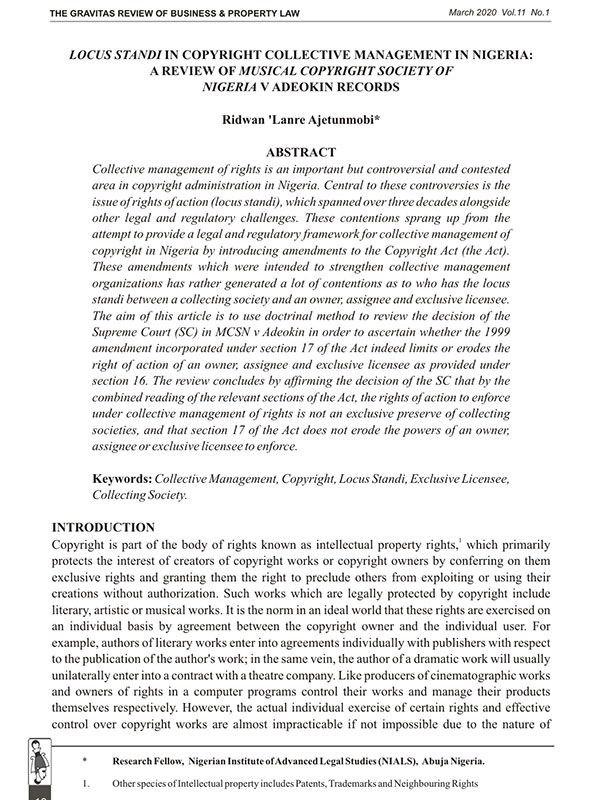
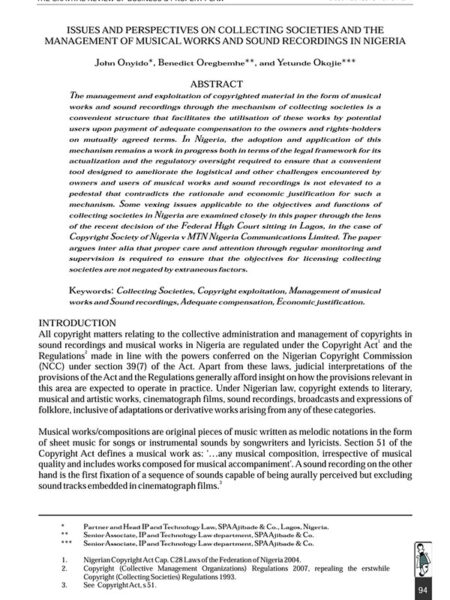
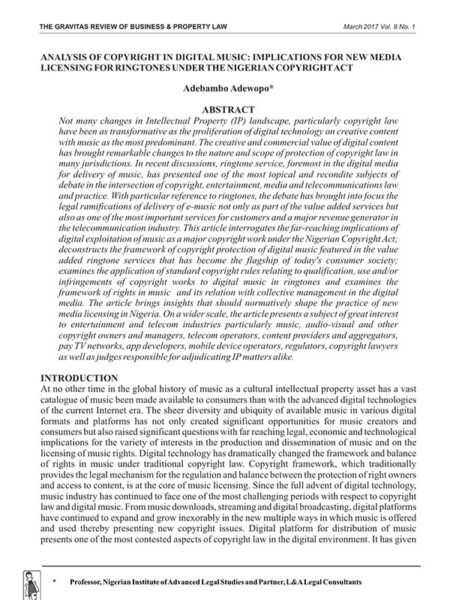
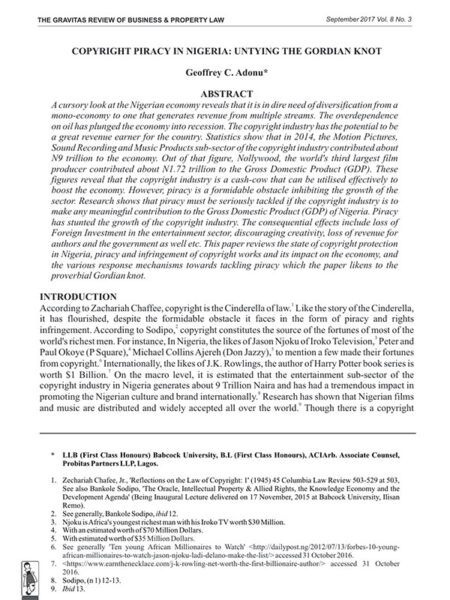
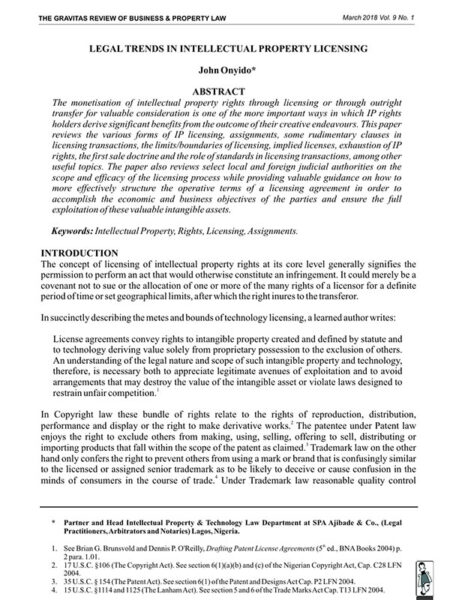


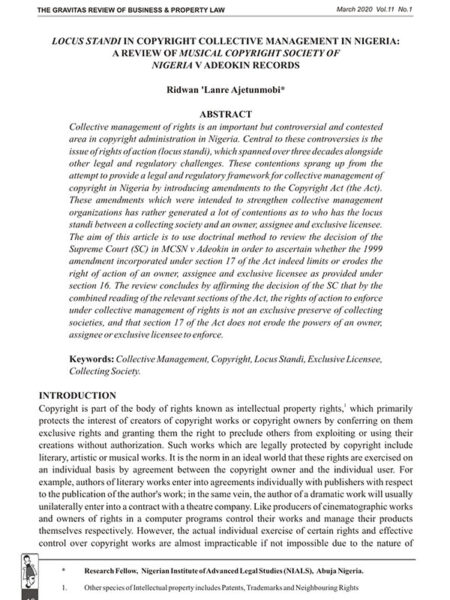
Reviews
There are no reviews yet.